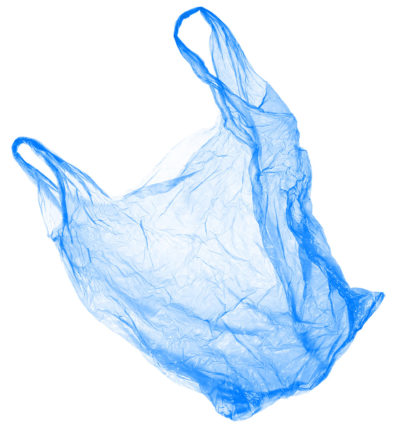Out of the bag
 Plastic bags have a harmful impact on the environment, but recycling polyethylene, which makes up one-third of all plastic production worldwide, has proven difficult. There’s little economic incentive, as recycled bags end up in low-value products, such as decks and construction materials. But a new chemical process, developed by a UC Berkeley research team, converts polyethylene plastic into a strong and more valuable adhesive, potentially changing that calculus.
Plastic bags have a harmful impact on the environment, but recycling polyethylene, which makes up one-third of all plastic production worldwide, has proven difficult. There’s little economic incentive, as recycled bags end up in low-value products, such as decks and construction materials. But a new chemical process, developed by a UC Berkeley research team, converts polyethylene plastic into a strong and more valuable adhesive, potentially changing that calculus.
The researchers — including Phillip Messersmith, professor of bioengineering and of materials science and engineering, working with chemistry professor John Hartwig — used a ruthenium-based catalyst, polyfluorinated ruthenium porphyrin, to produce a polyethylene compound that sticks tightly to aluminum metal. By adding a relatively small percentage of alcohol to the polymer, researchers were able to boost adhesion by a factor of 20. Getting polyethylene to adhere to things promises many potential applications, including artificial hip sockets and knee implants, coating for electrical wire, glues that stick other polymers together and more durable composites of plastic and metal, as in toys.
While the process is not yet economical for industrial use, researchers believe that it can be improved and could be the starting point for adding other properties besides stickiness. The success also hints that other catalysts could work with different types of plastics — such as the polypropylene found in recycled plastic bottles — to produce higher-value products that are more profitable.
Learn more: Upcycling: Turning plastic bags into adhesives (Berkeley News)

